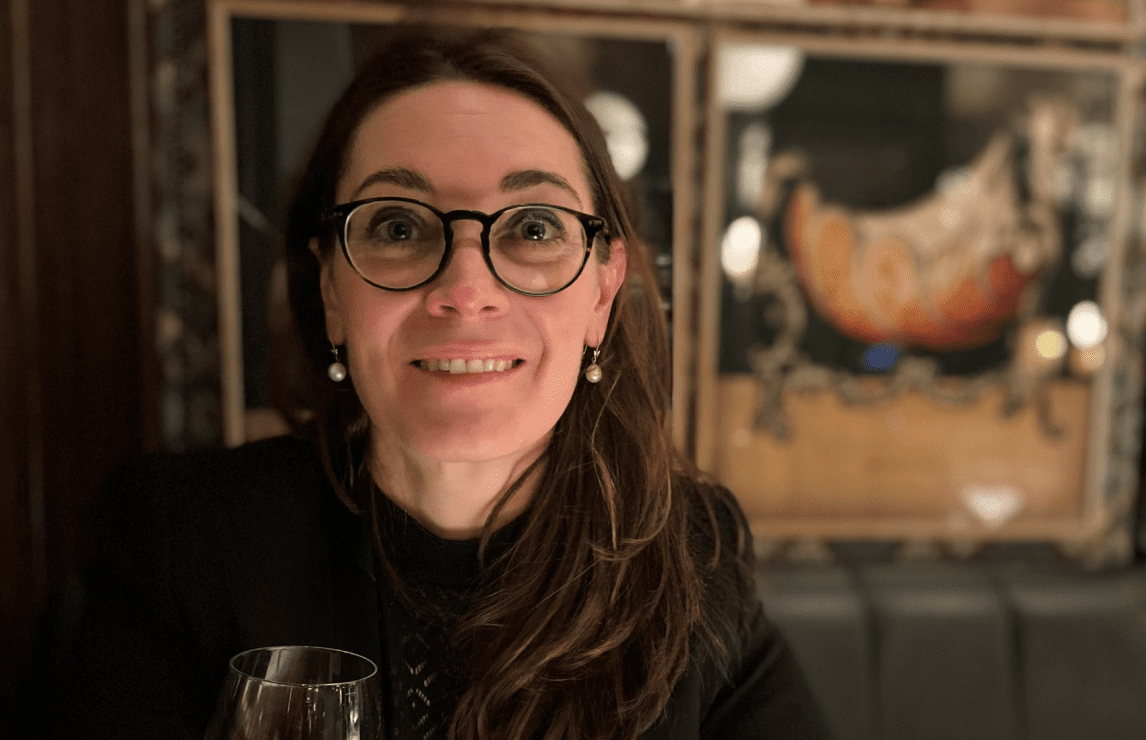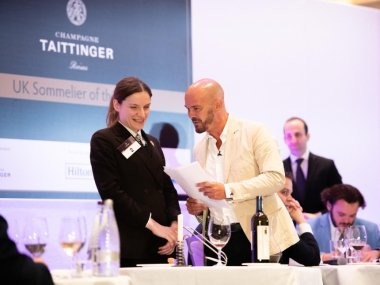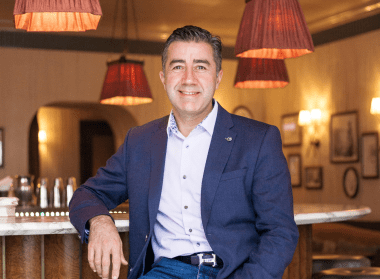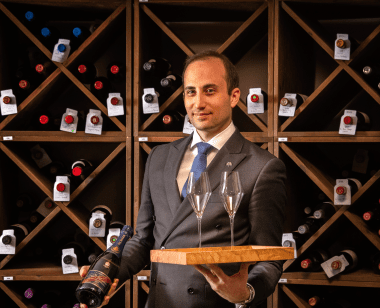The Winning Formula: Claire Thevenot MS
In the second instalment of our interview series with past winners of the Sommelier of the Year competition, we talk to industry veteran Claire Thevenot MS, founder of French wine importer Vins-Clairs, about how her mentor, Gérard Basset, helped to steer her towards success, what it felt like becoming the first French female Master Sommelier, and turning weaknesses into strengths
What first sparked your interest in wine?
I attended catering school in the Jura when I was 16. To make some pocket money during the holidays, I did the harvest in Beaujolais, which got me hooked on wine. I was fascinated by everything going on in the vineyard and the winery. My dream was to be a maître d’ of a hotel, but I’m extremely clumsy, so after finishing catering school I enrolled on a sommelier programme in Tain Hermitage, which is one of the most prestigious in France. You’re right in the vineyards and surrounded by amazing restaurants, so my passion multiplied by a thousand when I was there.
Who have your key mentors been and how did they help you grow?
We had two absolute legends at the sommelier school: Pascal Bouchet and Jean Jabert, who pushed me to enter the competition for France’s Best Student Sommelier, which I came second in. I then set my sights on other national competitions, but the structure is quite regimented in France, so I wrote to Gérard Basset and luckily he replied saying there was a position for me at the Hotel du Vin. I arrived in the UK in 2002 and within 18 months I became Head Sommelier at the Winchester site. Gérard was preparing for the Best Sommelier of the World competition in Athens, which he wanted my help with. In return he helped me prepare for the UK Sommelier of the Year. If he saw potential in you he was very generous with his time, but you were always the driving force.
What were your most significant career milestones before and after winning?
Being employed within the Hotel du Vin group was a big milestone for me, and in Gérard Basset I found the mentor I needed to help me win a national competition. Being the first French woman to pass the MS Diploma in 2006 was another big milestone. It’s not a well known in France, so I’m still only the second French woman to pass it along with Pascaline Lepeltier.
How did winning the Sommelier of the Year competition in 2006 impact your career?
Winning was a big moment for me. It led to a period of reflection about what I wanted to do next, which was challenging as it was the first time I didn’t have any goals to work towards, so I felt a bit lost. I wanted to get closer to the people making the wine, so I knew I needed a change of direction and that being a sommelier wasn’t the finishing line, which led me to a sales role at Enotria.
Did any opportunities come your way as a result of winning?
After winning your name is better known so you need to capitalise on it and do a lot of networking. You have the title for one year, so you need to make the most of it. One of the best things to come from it was being invited to a garden party at Buckingham Palace where I met the Queen and had a chat with Prince Philip, who asked me questions about my career and cracked jokes. It was raining so we had to be inside, but there are worse places to be trapped than Buckingham Palace!
How did you prepare for the competition?
I have a visual memory, so I would write down everything I knew about the subjects that were the hardest for me until the knowledge became instinctive. It’s so much easier if you can have a bit of fun with it through quizzes. It took me a year to prepare for the theory side of the competition. It’s important to be really organised about the time you dedicate to each country. Focus on the most important pieces of the jigsaw first and spend the last three months going back over everything. For the practical side I used to go over serving scenarios in the shower; a tip I learnt from Gérard!
What challenges did you face while preparing and how did you overcome then?
The biggest challenge is the sacrifices that you have to make in order to take part in the competition. I had to see a lot less of my family and have them come to England rather than visiting them in France so I could keep up my studies.
What advice would you give to sommeliers looking to take part in the competition?
Personality is really important – judges don’t want a robot, they’re looking for someone that’s able to face any type of situation, so don’t forget to be yourself and try to stand out from the crowd. You have to focus on your weaknesses and let them become your biggest strengths. If you’re struggling with one subject, leave it for a while then come back to it and try to make it your best asset.
What career advice would you offer to sommeliers entering the industry?
Be curious, ask a lot of questions, find yourself a mentor and attend as many tastings and masterclasses as possible to improve your knowledge. In our era of social media, it’s also important to learn from reliable sources.
How important is continuous learning and professional development?
You learn every single day in this job. To excel you need to find your passion and speciality and make a career out of it. If you really like German wines then work in a restaurant that specialises in them, don’t go to a steakhouse. Find what you love and become an expert about it. If you do, no one else will have the same set of skills as you so that will be really desirable to employers.
What qualities are essential for someone to succeed as a sommelier?
You need a really sharp palate, of course, and the ability to make quick assessments on all sorts of situations. On the floor your main contact is people, so people and management skills are hugely important, as are negotiation skills. You can’t be a cave man in this job, you have to like people!
What has been the most memorable moment of your career so far?
My family’s reaction when I won the Sommelier of the Year competition was heartwarming. I’m the fifth of five kids, so it was a constant battle to be recognised, and my parents were super proud when I won. My mum organised an interview with the local radio that I had to wake up at 5am for.
Which grapes / regions / wines are exciting you at the moment?
The Loire Valley is the next big region in France, which is super exciting, and there are a lot of young winemakers rising up there. Sancerre Pouilly-Fumé is being completely transformed and the rules are being re-written. The Roussillon is a bit of a Pandora’s box. There are some brilliant new wineries making fresh whites from such a sunny region and the value for money is incredible.
What are your future goals within the wine industry?
I hope I’ve made my last career move by creating my company, Vins-Clairs, which is my priory now. Looking ahead I’d like to get more involved in training the younger generation and transferring my skills. Having knowledge is one thing, but sharing it and transferring it is far more important.
For more information on how to enter UK Sommelier of the Year click here



